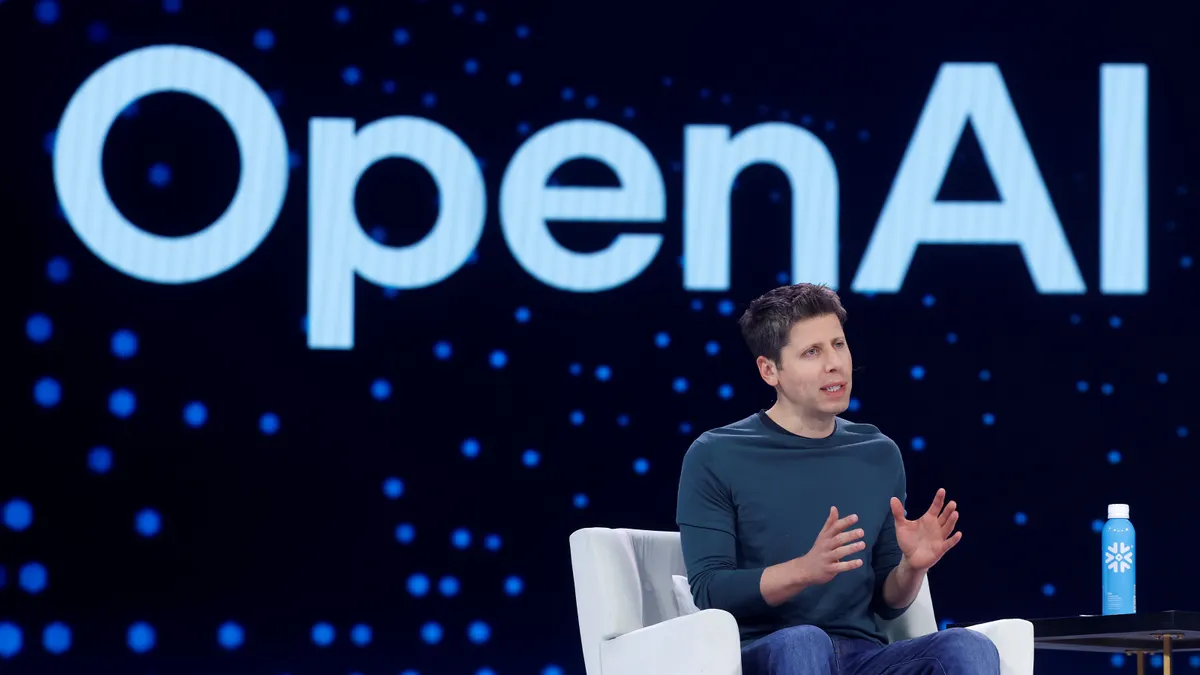Payments processor Stripe is introducing a new technical protocol for agentic artificial intelligence, teaming with ChatGPT parent OpenAI to allow people to buy Etsy goods directly from their chat session.
The new “agentic commerce protocol” announced Monday comes two weeks after Google debuted a competing agentic AI protocol, with the companies racing to provide payments infrastructure to enable a new era of commerce where automated bots select and purchase items online within shoppers’ preapproved parameters.
“It’s clear that internet purchasing modalities are going to change a lot, and we’re excited to start to lay some of the foundations,” Stripe CEO Patrick Collison wrote Monday on his X social media account.
The chat-commerce interface, called Instant Checkout, will become available “soon” for more than one million merchants on Shopify’s platform, San Francisco-based OpenAI said in its own press release Monday. Stripe and OpenAI said they’ll expand the protocol across more regions “over time.”
For retailers, agentic commerce could pose a revolutionary shift in terms of digital sales as digital bots shop for consumers.
Consulting firm Edgar Dunn & Co. projected in a May report that the value of AI-driven commerce could jump to $1.7 trillion by 2030, from $136 billion this year. PayPal CEO Alex Chriss said in July that agentic commerce “will drive the biggest transformations since the advent of e-commerce,” with 25% of online sales from AI agents by 2030.
Merchants will pay “a small fee” for completed purchases through ChatGPT, OpenAI said. A Stripe spokesperson declined to reveal any details of the fee structure or the company’s commercial arrangement with OpenAI.
“For shoppers, it’s seamless: go from chat to checkout in just a few taps,” OpenAI said in its press release Monday. “For sellers, it’s a new way to reach hundreds of millions of people while keeping full control of their payments, systems and customer relationships.”
Stripe said its ACP offers an open technical standard required for businesses to sell via “agentic commerce while preserving customer relationships and their existing systems.”
“Businesses not processing with Stripe can still adopt it with their existing payment providers, and it works across AI agents,” the company said.
For product searches, the chat bot’s results will be “organic and unsponsored, ranked purely on relevance to the user,” OpenAI said, adding that items that can be purchased via its agentic payments protocol are “not preferred in product results.”
Under its ACP protocol, Stripe issues a “shared payment token” to let digital applications like ChatGPT “initiate a payment without exposing the buyer’s payment credentials,” Stripe said, with the token “scoped to a specific merchant and cart total.” The chat agent then passes the token to the merchant via an API, or application programming interface, to complete the purchase.
Stripe, which has dual headquarters in San Francisco and Dublin, says it processed about $1.4 trillion in payments last year for merchants in 46 countries.
Stripe said in a separate news release Tuesday that it’s working with other AI companies, including Anthropic, Microsoft Copilot and Perplexity, “to test its solutions in real-world settings to help businesses get ready for agentic commerce.” Stripe made the announcement at its annual new product event in New York.
Rafe Colburn, chief product and technology officer at Brooklyn, N.Y.-based Etsy, said Monday in a blog post that agentic shopping offers “meaningful opportunities for the unique items on Etsy to shine.”
“These tools offer deeper insights into our inventory, enabling our sellers’ items to starkly stand out against the sea of impersonal, mass-produced goods,” Colburn wrote, noting a 4,700% jump last year in traffic from AI chats to retail sites, citing data last month from Adobe.
With bots operating between consumers and businesses, “everything from payments and checkout to fraud checks must be re-architected” to prepare for this new way of shopping, Stripe said in its news posting about the protocol. “And with many AI agents emerging, it’s not realistic for businesses to maintain integrations with each one.”





















